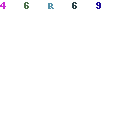Funk recognized as Distinguished Research Professor
Research comes in a variety of forms and fashions. It is not limited to hard sciences or social sciences. Creative writing may also be considered research, and, in terms of what it offers the professor, is just as important in the classroom as other research.
Allison Funk, professor of English language and literature, can now be called a distinguished research professor. In a ceremony on Thursday, March 31, Funk officially accepted the award. The award is designed to recognize the achievements of professors, in their contributions to academia, to their students, and to their own work.

Allison Funk receives the Distinguished Research Professor award from SIUE Chancellor Vaughn Vandegrift. photo courtesy of Bill Brinson.
“The SIUE Distinguished Research Professor is an academic rank awarded to SIUE faculty members in order to recognize outstanding and sustained contributions to research and creative activities,” according to the SIUE website.
The award is given as a recognition for work done after a scholar has reached the level of full professor which is considered the highest level that can be achieved in academia.
“The “distinguished” indicates that you have in fact done a lot of work since that time,” said Funk.
Funk has been teaching at SIUE since 1990, during which she has had three books of poetry published. She was promoted to full professor in 2000, after which point two of the three books were published.
In an email release announcing the award, it was stated, “During the period since her promotion, Professor Funk has published more than thirty-one (31) poems in poetry journals of the highest rank in the U.S. and abroad. These include Poetry, Poetry Review, Shenandoah, and Prairie Schooner. She has also been selected for inclusion in a total of ten (10) poetry anthologies, including two highly significant volumes.”
The latest book “The Tumbling Box” was published in 2009. Funk described this book as a deeply personal collection of poems. Funk said that even though her poems can stand alone, each of the books that she has crafted are also meant to be read as a narrative.
“Whenever I do a book–and it’s true with most poets–you often don’t know in the beginning how [the poems] are going to fit together. But ultimately, over how ever many years it takes, they do,” said Funk. “Each of the individual poems–hopefully–stands alone. But if you sit down, start from the first page and read through, there is a kind of narrative or development that is not often very straight forward, but by the time you get into the book and get to the end, where you end up at the end is different than where you started at the beginning.”
Funk has also had the opportunity to attend several artists’ colonies. These are often fellowships that allow artists and writers a place where they can pursue their craft in solitude. Funk states that these colonies are important because it allows artists to explore their practice without the normal, everyday interruptions.
“Those were extraordinary experiences because I was with other writers and other artists, in different countries,” said Funk. “So I had this incredible opportunity to use my French, to eat baguettes, to work at my art, and to be able to take in the landscape and culture of where I had been. I was just so fortunate–so amazingly luck–to have had this experience.”
Funk feels that the graduate school deserves some credit for her award. She stated that she believes SIUE does a lot to support the arts and the opportunity for the faculty to pursue their personal growth and scholarship. This translates into having the tools to properly teach the students at SIUE.
“I think that one of the things that the graduate school does here… is to provide money and time for faculty to–whether it is scholarship or creative writing or painting or math, whatever it is–is to really develop themselves as artists and scholars because I think we need to be so firmly involved in what we teach,” stated Funk. “How can I teach my students how to write if I’m not writing myself?”
Filed Under: English Language & Lit












